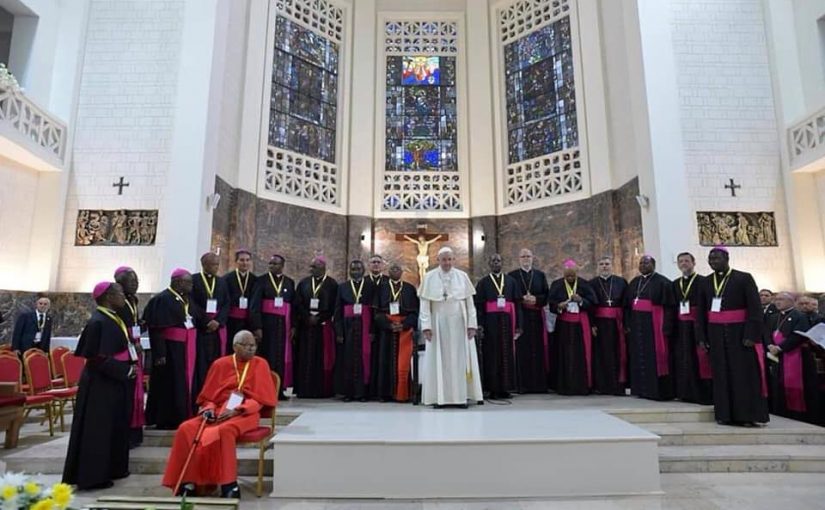The Episcopal Conference of Mozambique (CEM),
which brings together Catholic bishops from around the country, said that
“forgetting” of the population of Cabo Delgado, in the north of the country, by
the state powers is one of the causes of armed conflict in the region. [Please see below, the full text
of the CEM letter of the brothers and sisters of Cabo Delgado, in
Portuguese],
“The cause of so much suffering has deep roots
in the time when the population was forgotten,” the CEM said. The violence in
Cabo Delgado is inflicting “atrocities” on the population in the face of the
inability of the Mozambican government to stop the action of the armed groups
that are carrying out attacks in the province, notes CEM.
“Our hearts are filled with sadness to know of
so many atrocities being practised in your province,” the Mozambican Catholic
bishops said. The violence in Cabo Delgado is forcing children to walk in the
bush and seek refuge outside their homes, without food or any means of
subsistence and with a bitter heart, they said.
ALSO
READ: Watch: Pope Francis prays for Cabo
Delgado at Easter Urbi et Orbi Message 2020 | Full text
CEM praised the solidarity of many families
who live in safe areas, each of whom have given shelter at their home to more
than 20 to 30 people forced to flee the armed conflict in Cabo Delgado
province. The CEM is committed to mobilising aid from inside and outside the
country for humanitarian assistance to victims of the armed violence in the
province. The bishops praised the bishop of Pemba,
capital of Cabo Delgado, Luiz Fernando Lisboa, for his constant alerts to the
difficult situation in which the people of the province live.
Cabo Delgado, the Mozambican province housing
the largest private investment in Africa for natural gas exploration has been
under attack since October 2017 by insurgents, classified since the beginning
of the year by Mozambican and international authorities as a terrorist threat. In
two and a half years of conflict, it is estimated that at least 600 people have
died and about 211,000 have been affected, being forced to take refuge in safer
places, losing their homes, and other assets. The
Catholic Bishops of Mozambique wrote a letter to their brothers & sisters
of #CaboDelgado.
They express their solidarity, say they do not know what is the cause of so
much suffering (though they recognise it has profound roots), and they publicly
support the Bishop of Pemba pic.twitter.com/B0lt3HjVPR
— Eric Morier-Genoud
(@emorier) June
15, 2020 FILE PHOTO: Catholic Bishops of Mozambique with Pope Francis on 5
September 2019, during the Apostolic Journey of Pope Francis - Meeting
of Pope Francis with Bishops, Priests, Religious, Consecrated and
Seminarians, Catechists and Animators of Mozambique, in the Metropolitan
Cathedral of the Immaculate Conception, Maputo, 5 September 2019 . FOR
ILLUSTRATION PURPOSES ONLY: [File photo: Rádio Pax - Emissora Católica
da Beira / Facebook]]
FILE PHOTO: Catholic Bishops of Mozambique with Pope Francis on 5
September 2019, during the Apostolic Journey of Pope Francis - Meeting
of Pope Francis with Bishops, Priests, Religious, Consecrated and
Seminarians, Catechists and Animators of Mozambique, in the Metropolitan
Cathedral of the Immaculate Conception, Maputo, 5 September 2019 . FOR
ILLUSTRATION PURPOSES ONLY: [File photo: Rádio Pax - Emissora Católica
da Beira / Facebook]]
